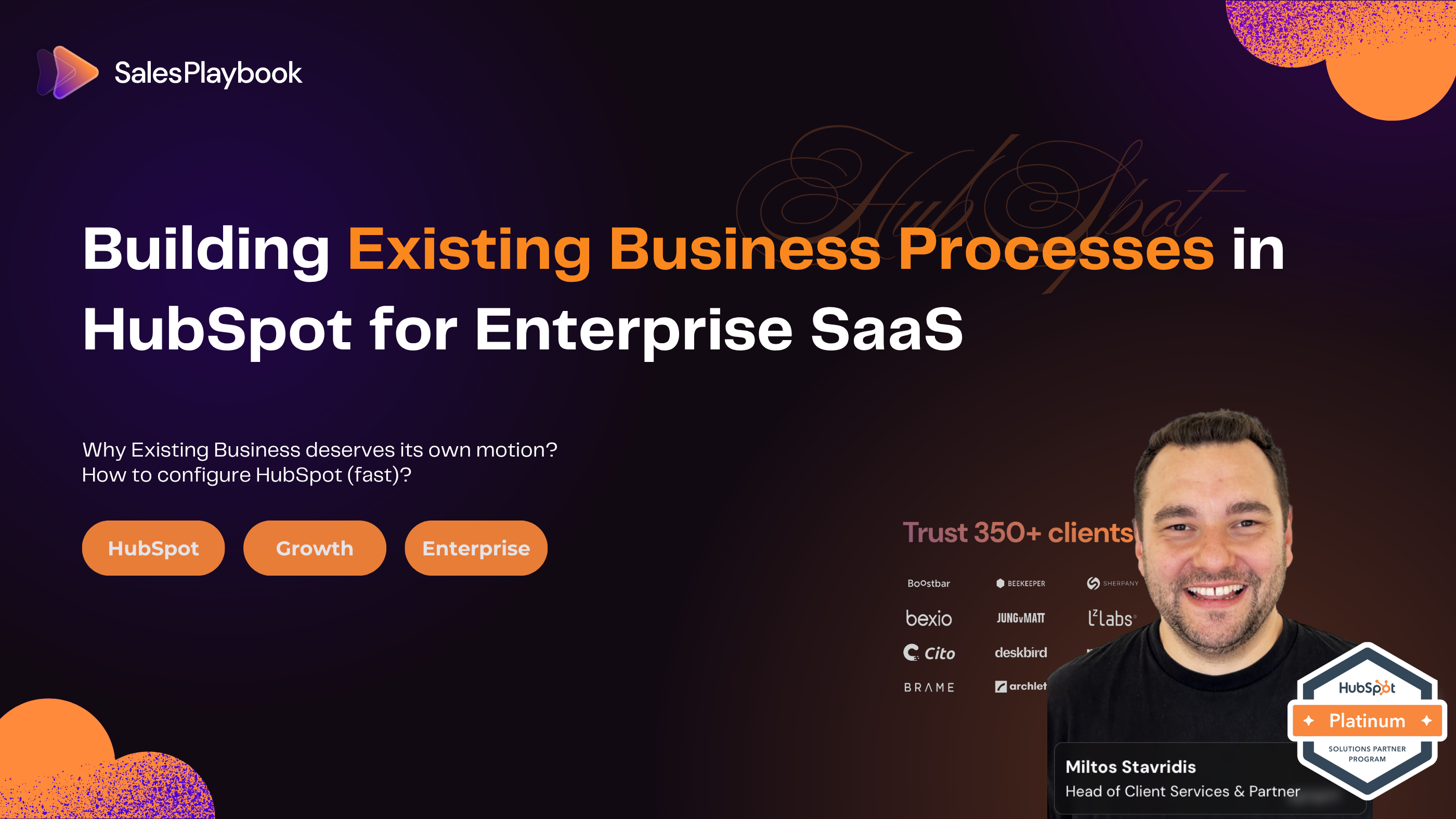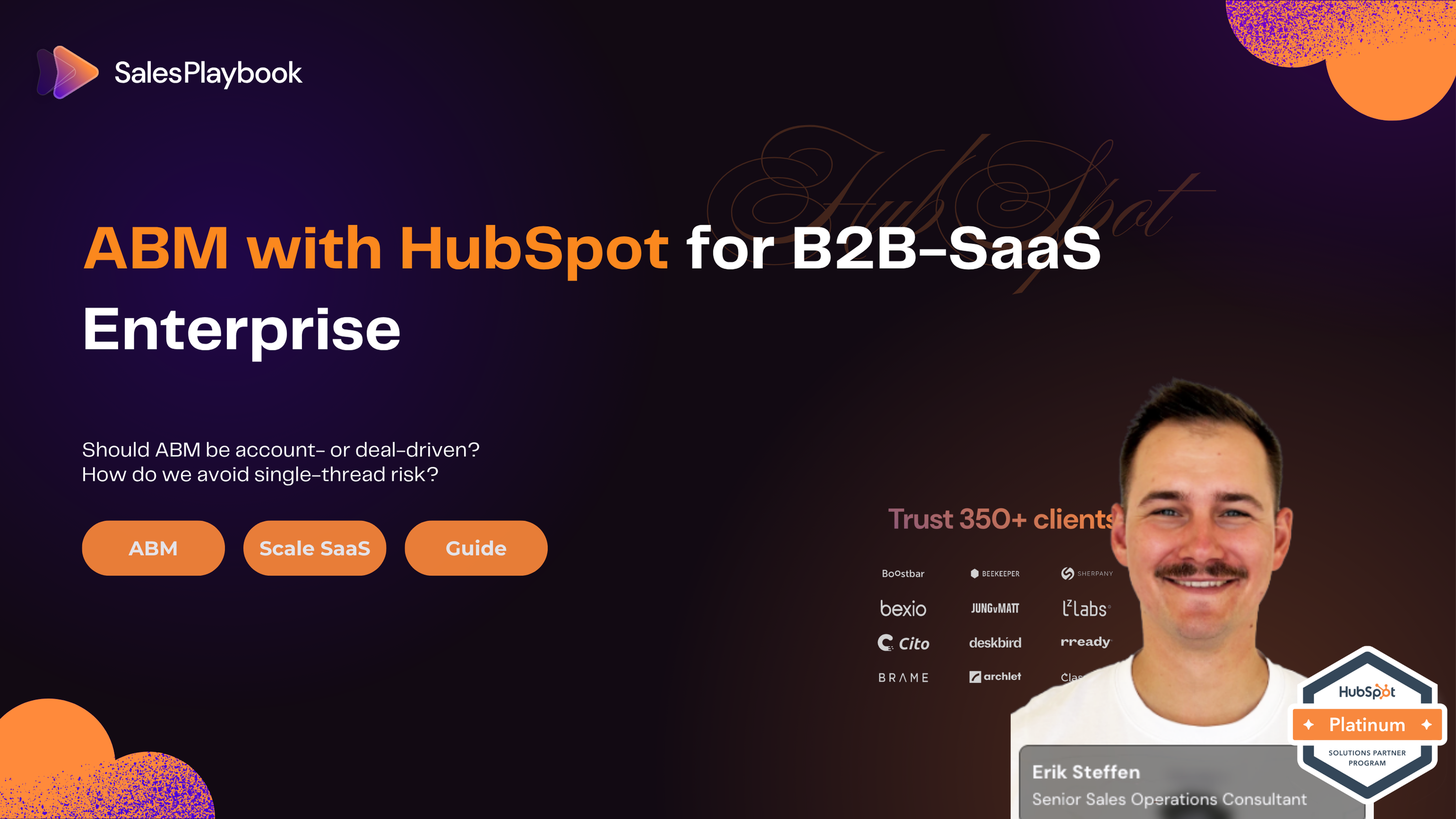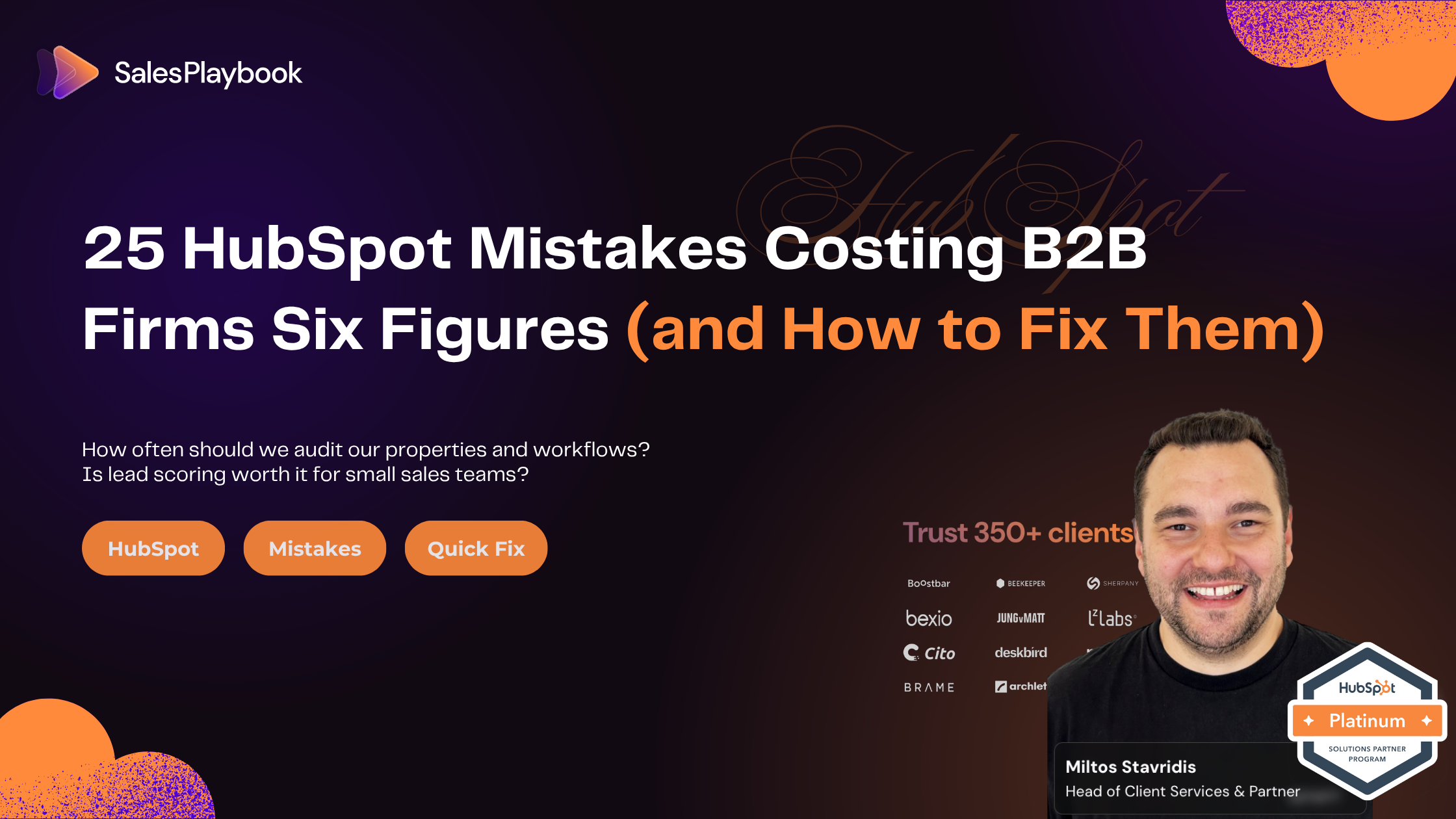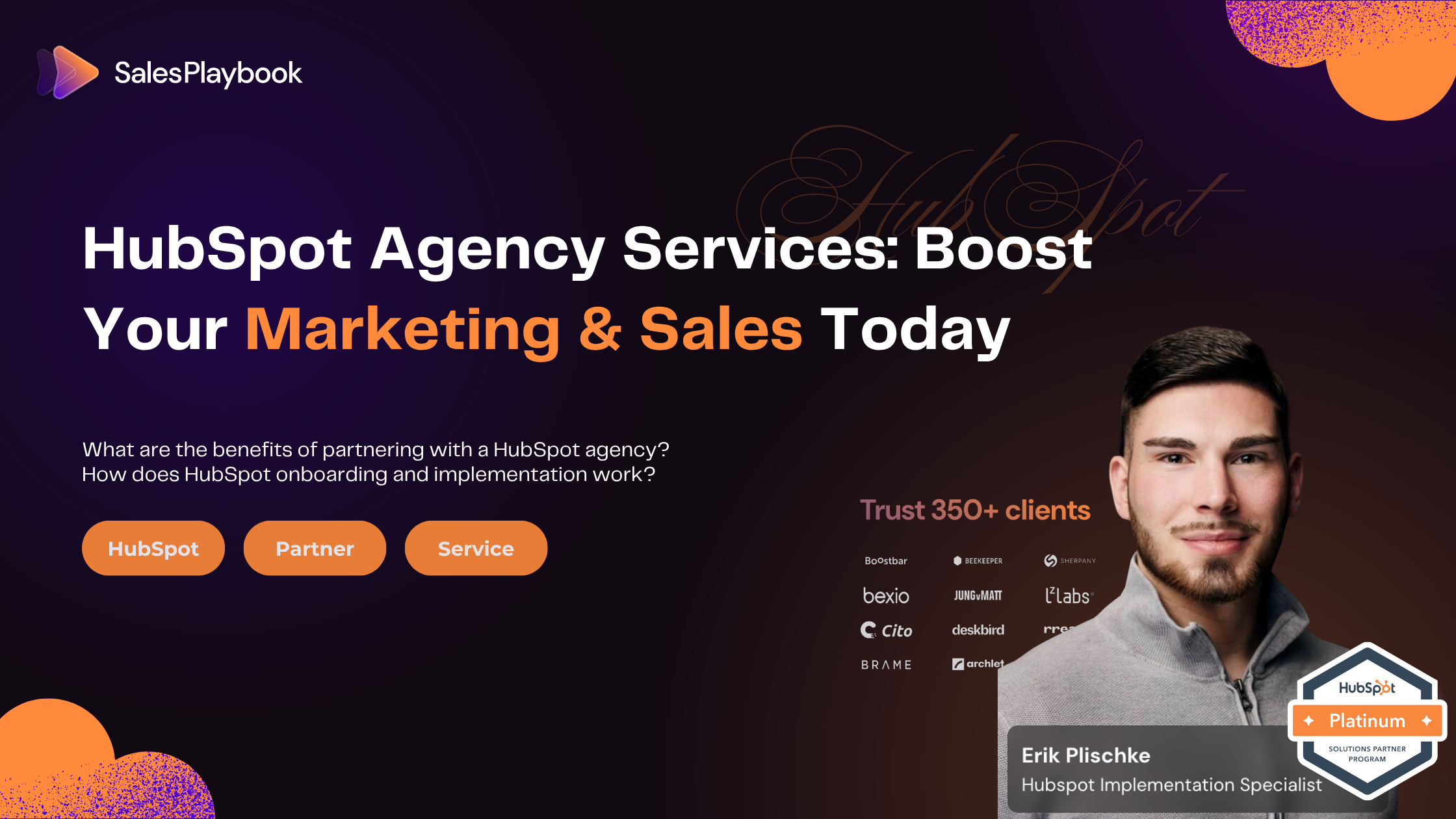
From “Closed Won” to Customer-Led Growth: Building Existing Business Processes in HubSpot for Enterprise SaaS
New business gets the spotlight, but in Enterprise SaaS the bulk of durable growth comes after the first signature: renewals, upsells, and cross-sells. When Sales and Customer Success run on a connected model in HubSpot, three compounding effects kick in: AEs keep line-of-sight on impact, CS uncovers expansion systematically, and leadership can track LTV, renewal risk, and expansion health in real time. That’s how customer-led growth becomes repeatable—not anecdotal.

.png)


.png)
.png)

.png)



.png)

%20(1).png)





















